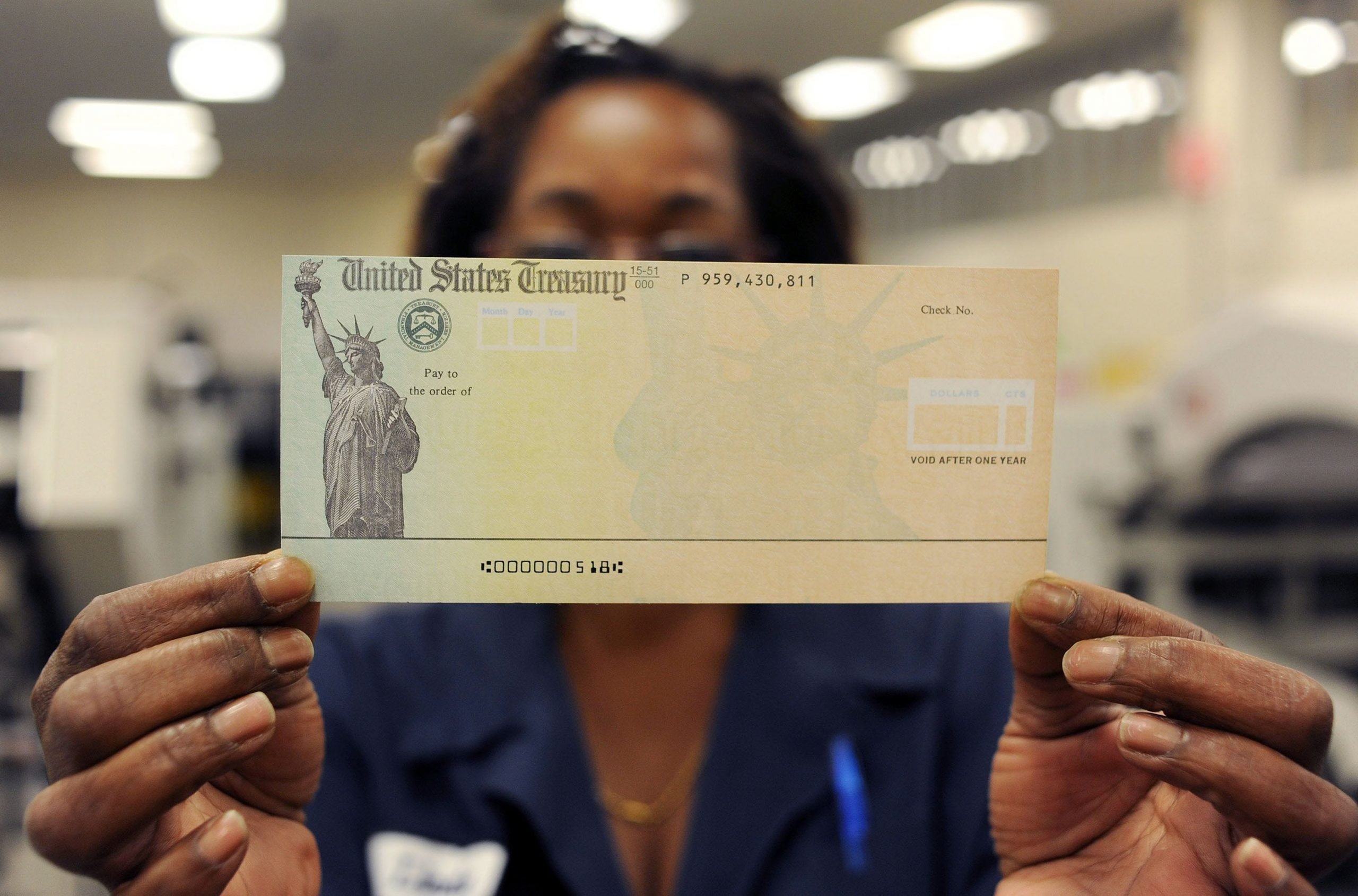Federal Taxation Of Social Security Disability Benefits
Here’s how it works. If you are married and you file jointly, and you and your spouse have more than $32,000 per year in income , a portion of your SSDI benefits are subject to tax. If you are single, and you have more than $25,000 in income per year , a portion of your SSDI benefits will be subject to tax.
How big a portion of your SSDI benefits is subject to tax depends on how high your income is. Here’s a chart with monthly income amounts that tells you whether your SSDI benefits will be taxed and the maximum portion of SSDI that could be taxed. If you have over $2,083 in income per month, calculating the actual amount of SSDI benefits that will be taxed can be quite complicated. The calculations are done on the IRS Form 1040 tax return, or you can use Social Security’s tax calculator.
When Disability Benefits Are Taxed
Whether Social Security disability benefits are taxed depends on your total income. You will avoid taxes if your total incomewhich is determined by adding one-half of your disability benefits to all other sources of income,;including tax-exempt interestis below the threshold set by the Internal Revenue Service .;If you are single, the threshold amount is currently $25,000. If you are married and file jointly, it is $32,000.
Who’s Eligible For Social Security Disability Insurance
To qualify for Social Security Disability Insurance, you must meet certain conditions.
First, you must meet a recent work test. This means earning at least a minimum amount per calendar quarter and working long enough. For each quarter you work and earn at least $1,470 , you receive one Social Security credit.
Meeting the recent work test requirement depends on your age. It also requires different amounts of Social Security credits.
- Under age 24: You meet the recent work test if you earned 6 credits in the 3-year period when your disability began.
- Age 24 to 31: In general, you may qualify if you have credits for working half the time between age 21 and becoming disabled.
- Age 31 or older: You’ll need to have earned at least 20 credits in the 10-year period immediately before becoming disabled.
Second, review the Social Security Administration’s table to determine if you meet the duration work test based on your age and when your disability began.
Third, you must be unable to work because of a medical condition expected to last at least one year or result in death. This means not having a partial disability and meeting the Social Security Administration’s definition of disabled.
Fourth, you must be younger than your full retirement age as defined by Social Security.
If you meet the requirements above and qualify for Social Security Disability Insurance certain members of your family may also receive benefits based on your work history.
Recommended Reading: How To Collect Disability In Nj
Half Of Your Ssdi Benefits Are Taxable Each Year
Many people who rely on monthly social security disability payment as their sole source of income won’t owe taxes. However, reporting the lump sum as income for one tax year can result in owing taxes. You could end up paying more than you need to pay if you don’t get the right advice.
If you make between $25,000 and $34,000 each year, you may have to pay income tax on up t0 50% of your benefits, and if you made more than $34,000, you could owe taxes on up to 85% of your benefits. A federal income tax return must be filed if gross income is over a certain amount per IRS rules,” Gada says. Whether you owe tax due to the lump sum payment will depend on how much you receive and how much income you had during the tax years the payment covered.
Factor In Additional Money Received

Your taxable income also includes any severance payments or money you received from unused sick days or vacation time. Your former employer may withhold taxes on these amounts, or they might not. If they dont withhold taxes, its doubly important to opt for withholding on your unemployment benefits or make estimated tax payments.
Also Check: Where Is The Disability Resource Center Located
Taxes And Supplemental Security Income
You should not ever have to pay taxes on your SSI benefits. These need-based benefits only go to families who have an extremely low income and few assets. If you met the guidelines for someone who had to pay taxes on their disability income, you would not meet the qualifications for this program.
In addition, the Social Security Administration never issues SSI back pay as a lump sum. Instead, it pays it in installments spread several months apart. This can help you avoid having to pay taxes when the Social Security Administration first approves you for disability benefits.
Disability Income Can Be A Financial Lifesaver If You Suffer From A Debilitating Illness Or Injury But In Some Cases The Irs Might View Your Disability Benefits As Taxable Income
You may hope you never have to receive disability income. But more than one in four people who are age 20 today can expect to lose at least a year of work because of a disabling condition before they reach normal retirement age, according to the Council for Disability Awareness.
If you do need to rely on disability benefits at some point in your life, youll likely wonder: Is disability taxable income? The answer depends on the type of benefits you receive, who paid for them and how they were paid.
Lets break down some of the types of disability income you might receive and how the IRS treats disability payments from different sources.
Also Check: How To Apply For Short Term Disability In Ma
Is It Wiser To Buy Disability Coverage With Pre
There are many considerations to be made when deciding to pay your premiums with pre-tax or post-tax dollars. For example, what is the nature of your workplace? If you work in a hazardous environment where debilitating injuries are likely to happen, paying with post-tax dollars would be the wiser choice.
Accidents are always unpredictable and can be life-altering. If they do occur, you would be fortunate to receive your benefits tax-free for the duration of your short-term or long-term disability. To be prepared for the worst, it often can be beneficial to pay a little more now to receive a more substantial benefit if you experience an accident leaving you unable to work. Tax-free benefit payments could be closer to your regular take-home pay, helping you maintain financial stability while adjusting to living with your disability or illness.
If you choose to pay for your premium with pre-tax dollars and you become disabled, 100% of your disability benefits will be subject to federal income tax.
Irs Rules: What Is Gross Income
For IRS purposes, the important number you report is called your AGI, or adjusted gross income. This is the result when you combine all your taxable income, then subtract all deductions you are eligible for. Your total income consists of:
- Wages
- Unemployment compensation
- Social security benefits
Once you have combined all applicable income sources, you have your total income. Then, you will subtract tax deductions to determine your AGI. Common deductions are:
- Educator expenses
- Student loan interest and tuition
You May Like: What Happens After You Are Approved For Disability
Most Disabled Beneficiaries Don’t Owe Taxes
As a practical matter, many SSDI recipients don’t face this issue because their overall income is too low to reach the tax threshold.
Disability benefits are intended to support people who largely are unable to work because of a;severe medical condition, and Social Security strictly limits how much you can earn from work and remain eligible for SSDI. In 2021 the earnings cap is $1,310 a month for most beneficiaries.
According to the Social Security Administration, about a third of disabled beneficiaries pay taxes on their benefits. When they do, it’s typically because of other household income, such as a spouse’s earnings.
To determine if your SSDI is taxable, enter your benefit, income and marital information into the IRS online tax tool or fill out Worksheet 1, Figuring Your Taxable Benefits, in IRS Publication 915,;“Social Security and Equivalent Railroad Retirement Benefits.”
Keep in mind
Please leave your comment below.
You must be logged in to leave a comment.
Featured AARP Member Benefits
How The Eitc Affects Other Government Benefits
If you apply for or get benefits or assistance using a program that uses federal funds, the refund you get when you claim the EITC does not count as income. It cant be counted as income for at least 12 months after you get it.
To find out if this rule applies to your benefits, check with your benefit coordinator.
Recommended Reading: Can You Get Disability With A Gaf Of 50
Brief History Of Social Security
The Social Security program was created by the Social Security Act that President Franklin D. Roosevelt signed into law in 1935. The first checks went out in 1940. Originally it paid benefits only to workers 65 and older, but in the 1970s the government altered it to allow workers to claim benefits as early as 62. It also instituted annual cost-of-living adjustments to help Social Security keep pace with inflation.
The program has worked fairly well so far, but many people fear for the future, when there will be fewer workers to support a greater number of Social Security recipients. The latest Social Security Trustees’ Report indicates the program’s trust funds would be depleted by 2035, after which it would be able to pay out only about 76% of benefits to retirees and about 92% to disabled workers.
The government has proposed several possible solutions for ensuring the long-term sustainability of the program, but at present no plans have been set. There’s no risk of the program disappearing in the next decade or two, but it’s possible future benefits may not go as far as they do today. That’s why today’s workers need to prioritize their personal retirement savings, so they can cover most of their expenses on their own.
You might also like
Nering To Assist Persons With Disabilities

If your organization;works with or serves people with disabilities who have low to moderate incomes, your organization may be a good;candidate to partner with IRS;for tax assistance in your community.;;Every year thousands of organizations nationwide join with IRS to help;people who need tax help. Working together, IRS and other groups;deliver financial education as well as;other;tax;services free to the public.
You May Like: Whats Considered Short Term Disability
Recommended Reading: Can You Work On Disability In Texas
Can The Irs Garnish Social Security Payments
Yes. Since the beginning of 2002, Social Security benefits paid out by the Bureau of Fiscal Services are subject to a levy through the Federal Payment Levy Program . However, there are several exceptions to the IRSs ability to garnish Social Security payments. The IRS can only garnish a specific percentage of your social security check each month. It is also important to note that owing back taxes does not affect your eligibility to apply for or receive Social Security benefits.
Is Social Security Disability Taxable
OVERVIEW
To qualify for Social Security Disability Insurance, you must meet certain conditions. Well help you navigate your eligibility and tax responsibility for Social Security disability.
In the U.S., if you work long enough, pay your taxes, and meet certain income thresholds during your career, you can participate in Social Security programs. Over time, you pay into this system and can expect to receive several benefits for you and your family.
If you worked but become disabled and have limited resources and means to earn income, the Social Security Disability Insurance program can assist. The program pays benefits to you and your children. But because your taxes fund this program, you may wonder is Social Security disability taxable? Let’s find out.
You May Like: When On Disability When Does Medicare Start
How The West Taxes Social Security
Nine of the 13 states in the West don’t have income taxes on Social Security. Alaska, Nevada, Washington, and Wyoming don’t have state income taxes at all, and Arizona, California, Hawaii, Idaho, and Oregon have special provisions exempting Social Security benefits from state taxation. That leaves Colorado, Montana, New Mexico, and Utah, which impose taxes on Social Security for some individuals.
The Future Of Social Security Isn’t Clear
Social Security isn’t in great shape, on the whole. According to a 2019 report from the trustees of Social Security and Medicare, the federal program that pays out retirement and disability benefits to millions of Americans was expected to be in the red in 2020 and “all later years,” paying out more than it’s collecting in funding. And that was before the coronavirus pandemic hit and mass unemployment befell America.
Every working American pays into the Social Security and Medicare systems through a 7.65% payroll tax, or a 15.3% tax if self-employed, which covers both the employee and the employer portions. That tax is levied on the first $142,800 of a worker’s income in 2021, up from $137,700 in 2020.
Taxes being paid by workers at present aren’t saved for their own future retirement. Instead, they go toward funding Social Security benefits for the currently disabled or retired, as well as retirees’ spouses and dependents, and surviving dependents and spouses. As Darren Fonda
Also Check: How Does It Take To Get Social Security Disability
What Deductions Are Taken From Social Security Paychecks
In 2010, more than 54 million people in the United States received $58 billion in Social Security benefits. Social Security checks are distributed from three benefit programs — retirement, survivors and disability — tax-free. However, benefit payments are decreased through deductions authorized by the federal government. If beneficiaries owe taxes, federal debt or have support orders, the amounts owed are deducted from their Social Security checks.
Are You Eligible To Apply For Benefits
Anyone is able to apply. Your local Social Security office staff will review the non-medical portion of your application to determine the benefits for which you are eligible. They will look at your work history, your age, your income and your resources.
In Oklahoma, your application is then sent to the Disability Determination Services . The DDS, a division of the Oklahoma Department of Rehabilitation Services, is responsible for making timely, and accurate disability determinations in accordance with Social Security Rules and Regulations.
DDS personnel, consisting of a physician or psychologist and a disability examiner, will consider all the facts in your case using medical information from your doctors, hospitals, clinics, and other places where you have been treated to determine if you are found to be medically disabled.
Once a determination on your claim is reached, you will get a written notice from the Social Security Administration explaining the determination. If your claim is approved, the notice will show the amount of your benefit and when payments will start.
Don’t Miss: How To File For Disability In Illinois
What Events Happen Before The Irs Garnishes Social Security
The good news is that the IRS will give you advance notice before garnishing your Social Security benefits. The IRS will first send you a letter of their intent to levy. This notice is called a Final Notice Before Levy on Social Security Benefits, IRS Form CP91 or CP298. Once you receive the Final Notice, you will have 30 days to respond to the IRS before they garnish your Social Security benefits. The Final Notice will also advise you of your appeal rights. If you do not agree that you owe back taxes, you can file an appeal with the Office of Appeals. The Office of Appeals is an independent organization within the IRS that handles tax disputes. If you fail to pay the past due to taxes or to enter into a repayment plan, the Social Security Administration will begin withholding 15% from your monthly check.
Get More With These Free Tax Calculators And Money

-
See if you qualify for a third stimulus check and how much you can expect
-
Know what dependents credits and deductions
-
Know what tax documents you’ll need upfront
-
Learn what education credits and deductions you qualify for and claim them on your tax returnGet started
The above article is intended to provide generalized financial information designed to educate a broad segment of the public; it does not give personalized tax, investment, legal, or other business and professional advice. Before taking any action, you should always seek the assistance of a professional who knows your particular situation for advice on taxes, your investments, the law, or any other business and professional matters that affect you and/or your business.
Read Also: How Much Is 70 Percent Military Disability
Can I Pay These Taxes Myself
If you do not fill out Form W-4V and specifically ask to have taxes withheld, they will not be. You are responsible for paying them yourself.
Every January, you will receive IRS Form SSA-1099 in the mail. This is your Social Security Benefit Statement. It shows your total earnings in disability benefits for the previous year. When you file your federal income tax return, you must list the amount from your SSA-1099 as income. As mentioned above, your total income from all sources determines if any portion of your benefits are taxable.
If you wish to pay your taxes yourself but do not want to bear the risk of coming up short at the end of the year, you have a third option. You can make quarterly estimated payments to the IRS. If you come up a little bit short, you pay the difference at tax time. If you overpay, you receive a tax refund.
